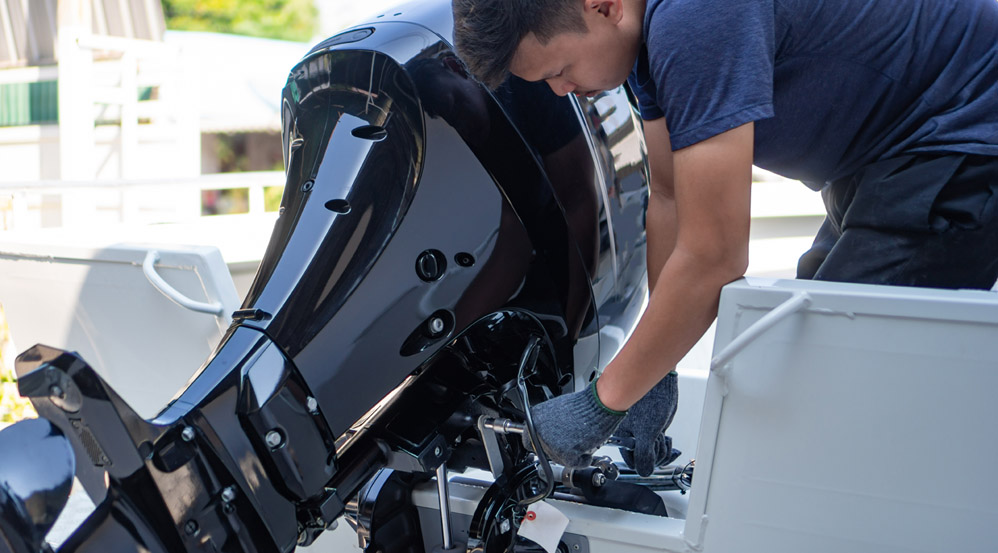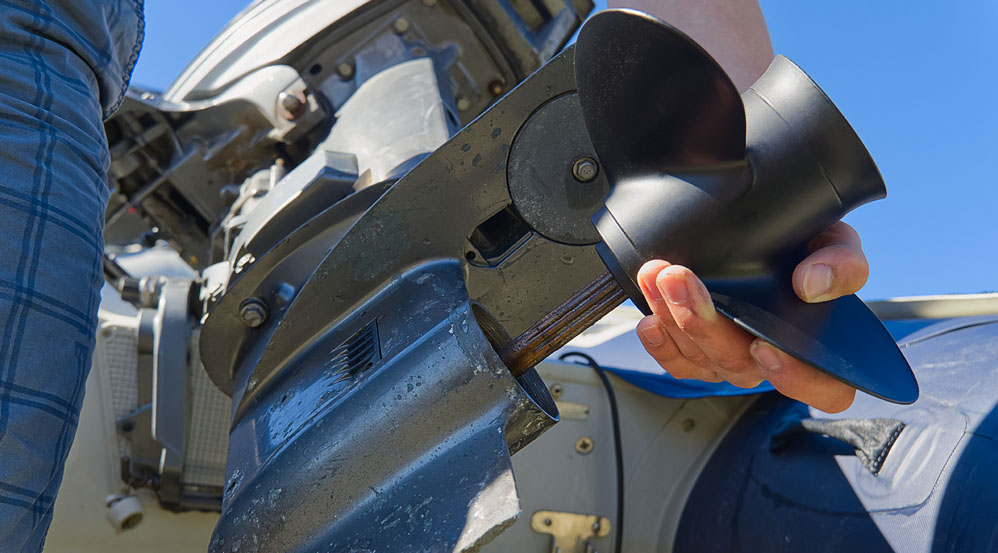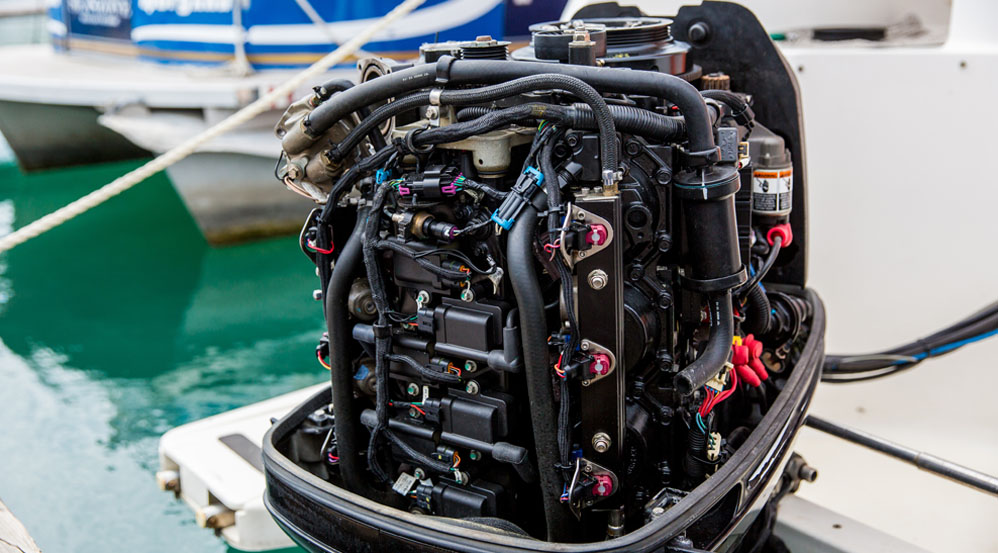- April 22, 2025
- Marine Engines
- What to Look for When Buying a Pre-Owned Marine Engine: A Practical Guide for Smart Buyers
Buying a pre-owned marine engine can be a great way to save money while upgrading or maintaining your vessel. However, it can also be a risky endeavor if you’re not careful. Whether you’re a seasoned boater or a first-time buyer, knowing what to look for can mean the difference between smooth sailing and an expensive mistake.

Here are the most important things to look for when purchasing a pre-owned marine engine:
Engine Hours
Just like mileage in a car, engine hours indicate how much the engine has been used. A well-maintained engine with high hours can still be a better buy than a low-hour engine that’s been neglected.
- What to look for: Ask the seller for documentation of engine hours and how the engine was used (leisure cruising vs. commercial use).
- Red flag: An engine with suspiciously low hours and no maintenance records.
Maintenance History
A complete and consistent maintenance history is crucial. Look for regular oil changes, impeller replacements, and winterization.
- What to look for: Receipts, service logs, or dealer stamps showing scheduled maintenance.
- Red flag: Gaps in service history or unclear records—this could mean the engine was neglected.
Compression Test Results
Compression is a key indicator of an engine’s internal health. Uneven or low compression in one or more cylinders can mean serious issues.
- What to look for: Have a mechanic perform or verify compression test results.
- Red flag: Large variation between cylinders or results below manufacturer specs.
Corrosion and Rust
Marine engines operate in harsh environments, and corrosion can kill them fast—especially in saltwater applications.
- What to look for: Check the engine block, mounts, and electrical connections for signs of rust or corrosion.
- Red flag: Flaking metal, green corrosion on wiring, or signs of salt buildup.
Oil and Fuel Condition
Inspect the oil and fuel for contamination, water, or unusual color/smell.
- What to look for: Clean, golden-brown engine oil and clear, fresh fuel.
- Red flag: Milky oil (water intrusion), sludge, or fuel that smells sour or varnished.

Cooling System Condition
Overheating is a common issue in marine engines. The cooling system, including the water pump and impeller, should be in good working order.
- What to look for: New or recently serviced impeller, clean heat exchanger, and no signs of overheating (e.g., warped parts, scorched paint).
- Red flag: Evidence of overheating or lack of coolant maintenance.
Smoke and Noise During Startup
Start the engine cold if possible—this can reveal hidden problems that may be masked when the engine is warm.
- What to look for: Smooth idle, minimal smoke, and clean acceleration.
- Red flag: Excessive blue or black smoke, knocking sounds, or difficult startup.
Transmission and Prop Shaft Play
The transmission should engage smoothly, and there should be minimal play in the prop shaft.
- What to look for: Test in gear (if possible), feel for smooth engagement and prop movement.
- Red flag: Clunky shifts, delay in engagement, or excessive vibration.
Brand Support and Parts Availability
Some older or obscure brands may no longer be supported, making parts difficult or expensive to source.
- What to look for: A model that is still supported by the manufacturer or has good aftermarket parts availability.
- Red flag: Obsolete models or brands with limited dealer networks.
Professional Inspection
Even if you’re mechanically inclined, a marine surveyor or certified mechanic can spot issues that you might miss.
- What to look for: A third-party inspection report or survey, especially for high-value engines.
- Red flag: Seller reluctance to allow an inspection or test run.

Buying a pre-owned marine engine can be a smart move if you know what to look for. Take your time, ask questions, and never be afraid to walk away if something doesn’t feel right. A little extra diligence up front can save you a lot of hassle and money down the line.
Happy boating!
